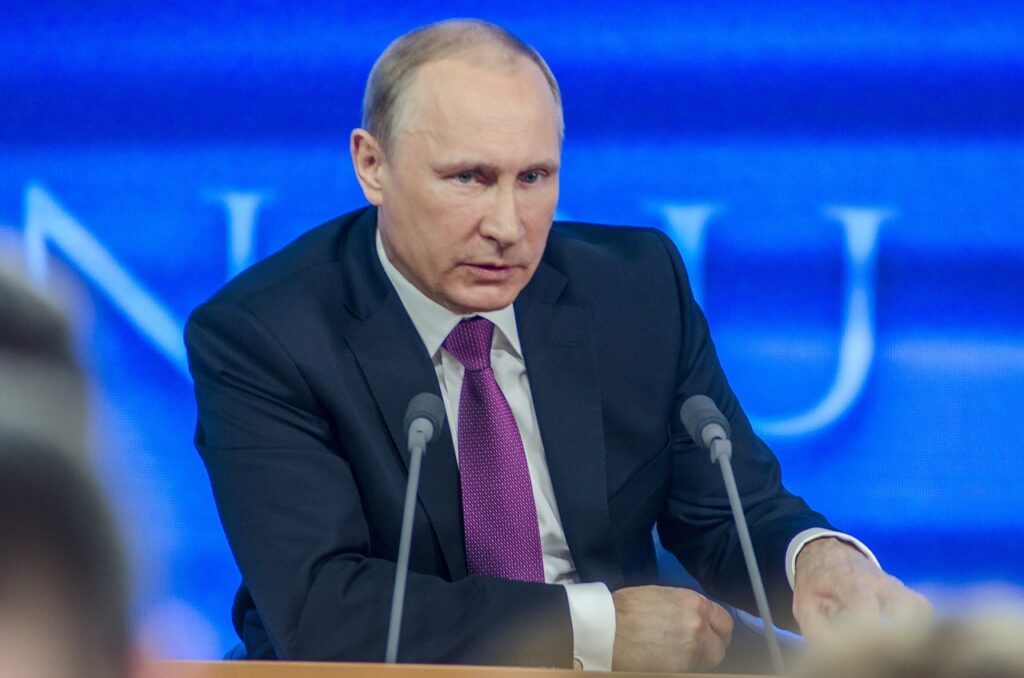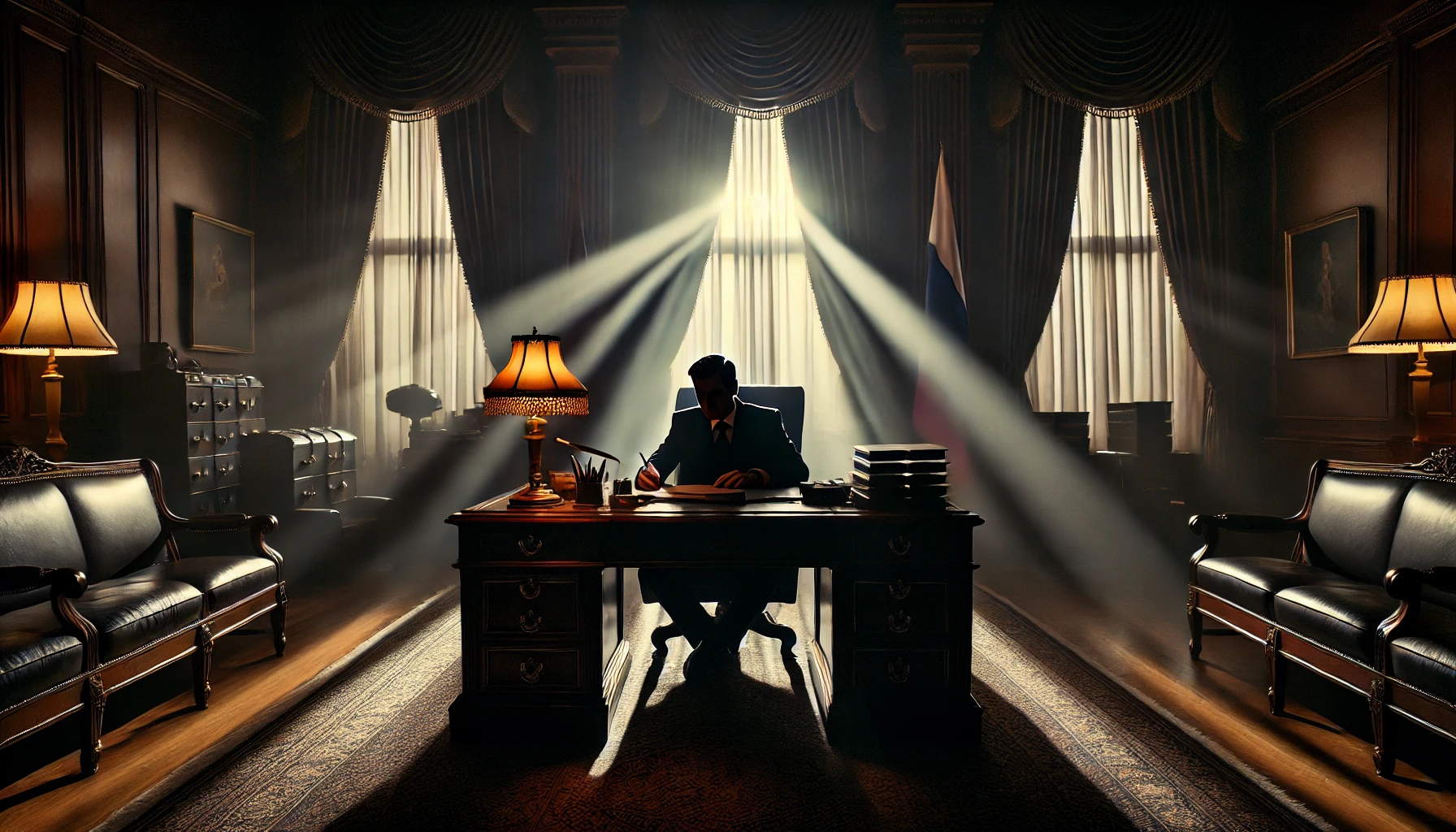Vladimir Vladimirovich Putin, born on October 7, 1952, in Leningrad (now Saint Petersburg), emerged from the crucible of post-World War II Soviet Union—a nation scarred by immense loss yet driven by an unyielding resolve to reclaim its stature on the global stage.is journey from a communal apartment in Leningrad to the pinnacle of Russian power encapsulates the tumultuous narrative of a country grappling with its identity amidst the ruins of an empire.

The Formative Years: A Soviet Upbringing
In the aftermath of the Great Patriotic War, the Soviet Union endeavored to rebuild not only its cities but also its ideological fortresses. Young Vladimir, the son of a factory foreman and a homemaker, was a product of this era—a time when the state sought to mold its citizens into exemplars of socialist virtue. The allure of the clandestine world of intelligence captivated him early on, leading him to pursue a law degree at Leningrad State University, a common pathway for aspiring members of the Soviet elite. Upon graduation in 1975, Putin joined the KGB, the Soviet Union’s premier security agency, marking the beginning of his immersion into the intricate web of espionage and statecraft.
The KGB Years: Behind the Iron Curtain
Assigned to Dresden, East Germany, during the 1980s, Putin witnessed firsthand the ideological battle between East and West. The KGB’s role extended beyond intelligence gathering; it was an instrument of state control, shaping narratives and suppressing dissent. The fall of the Berlin Wall in 1989 and the subsequent dissolution of the Soviet Union were seismic events that reshaped the geopolitical landscape.or Putin, these were not just political failures but profound personal betrayals—a sentiment that would later inform his vision for Russia’s resurgence.
The Political Ascendancy: Navigating Post-Soviet Chaos
Returning to a Russia in flux, Putin aligned himself with Anatoly Sobchak, the reformist mayor of Saint Petersburg. In various municipal roles, he honed his skills in political maneuvering and economic management. The 1990s were a period of upheaval for Russia, characterized by economic turmoil, rampant corruption, and a loss of international standing. Amidst this chaos, Putin’s ascent was swift. By 1999, he was appointed Prime Minister by President Boris Yeltsin, and upon Yeltsin’s unexpected resignation on December 31, 1999, Putin assumed the role of Acting President. His decisive actions in the Second Chechen War bolstered his image as a strong leader, paving the way for his formal election as President in 2000.
The Putin Doctrine: Centralization and Control
Putin’s tenure has been marked by a deliberate effort to recentralize power, reversing the decentralization that characterized the immediate post-Soviet years. He reasserted federal authority over Russia’s vast regions, curtailed the influence of oligarchs who had risen to prominence in the 1990s, and brought national media under state control. These actions, while criticized by some as authoritarian, were justified by Putin as necessary measures to restore stability and national pride.he concept of “sovereign democracy” emerged, emphasizing Russia’s unique path and rejecting Western models of governance.
Foreign Policy: Asserting Russia’s Place in the World
On the international stage, Putin has been a staunch advocate for a multipolar world order, challenging the unipolarity of American dominance. His 2007 Munich Speech was a clarion call against NATO expansion and U.S. unilateralism. The annexation of Crimea in 2014 and the intervention in Syria in 2015 were strategic moves aimed at reasserting Russia’s influence in its near abroad and the Middle East, respectively. These actions, while resulting in international sanctions and diplomatic isolation, resonated domestically, reinforcing Putin’s narrative of Russia as a besieged fortress standing against Western encroachment.
Domestic Challenges: Balancing Progress and Tradition
Domestically, Putin has navigated the delicate balance between modernization and traditionalism. Economic reforms and integration into the global economy have been pursued alongside efforts to revive traditional Russian values and the Orthodox faith. Critics argue that his tenure has seen the erosion of democratic institutions and the suppression of dissent, pointing to incidents such as the imprisonment of political opponents and the tightening grip on civil society. Supporters, however, credit him with restoring order and national pride after the tumult of the 1990s.
The Man and the Myth: Crafting an Image
Putin’s carefully curated public persona—a judoka, a pilot, a man of action—serves to reinforce his image as a leader in touch with the Russian spirit. This projection of strength and vitality is not merely personal branding but a reflection of the state’s narrative under his rule. In a country where the line between the leader and the state often blurs, Putin embodies the aspirations and anxieties of a nation seeking its place in a rapidly changing world.
Legacy and the Future: An Unfinished Chapter
As of 2025, Putin’s influence on Russia is undeniable. Constitutional amendments in 2020 have reset presidential term limits, potentially allowing him to remain in power until 2036. His legacy will be judged by historians as a complex interplay of restoration and regression, modernization and autocracy. In the grand tapestry of Russian history, Putin’s era represents a chapter where the quest for stability and greatness often intersected with the suppression of dissent and the centralization of authority. In examining Putin’s life, one observes the broader narrative of Russia itself—a nation perpetually oscillating between the pull of Westernization and the comfort of its own unique path, between the chaos of reform and the order of autocracy. Putin’s story is, in many ways, the story of Russia’s ongoing struggle to define its identity in the post-Soviet world.
